Vietnam eager to boost fertiliser supply
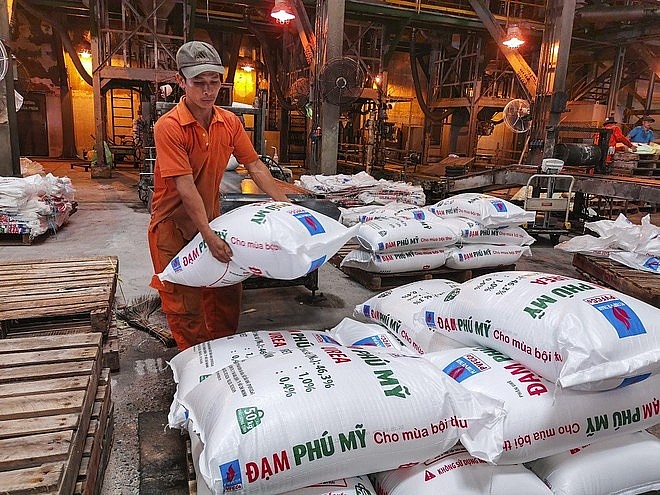 |
| Vietnam eager to push evolution of fertiliser plants |
Aware of the key role of fertilisers in the economy, Prime Minister Pham Minh Chinh in early September said that boosting domestic production would create stable supply for agricultural production, decrease imports, and contribute to building an independent and self-governing economy.
The PM asked ministries and sectors to solve difficulties at the Ha Bac fertiliser plant and Ninh Binh Nitrogenous Fertiliser Co. Ltd., both units of state-run chemical group Vinachem.
On a business trip to these plants in mid-August, he said that the two plants had many similarities, such as cumulative losses, initial low capital, engineering, procurement, and construction (EPC) contract agreement, and poor performance.
| To stabilise the price in the domestic market, in late August, the Ministry of Finance again asked the government to apply an export tax rate of 5 per cent. The first proposal was submitted in April. |
PM Chinh asked ministries and local authorities to cooperate with the companies to resolve the EPC contract agreement, minimise losses, increase productivity, solve credit contracts, and reduce prices.
The Ha Bac fertiliser plant opened seven years ago, but environmental and financial issues have arisen since. After being upgraded and expanded, the plant is expected to eventually raise its annual capacity to 500,000 tonnes from 180,000 tonnes.
Ninh Binh Nitrogenous Fertiliser was established in 2011 with total charter capital of VND2.5 trillion ($108.7 million). Since it began operations, the company has reported losses for consecutive years.
In the last two years, business results have been more positive. In 2021, they earned over $174 million in revenue, increasing 229 per cent from 2020. In the first half of 2022, it acquired over $109 million in revenue and made a profit of nearly $30.4 million. Its total current assets now reach $382 million.
However, the company still suffers big losses. In 2021, it had debts of $521.7 million. It has made plans to build a debt restructuring strategy to submit to the government.
Concentrating on these two fertiliser plants has been the government's priority because they were two of 12 loss-making projects managed by the Ministry of Industry and Trade.
The mission has become more urgent as the price of imported fertilisers and materials for production is volatile due to political instability elsewhere.
Phung Ha, vice chairman and general secretary of the Vietnam Fertiliser Association, said that Vietnam's fertiliser industry largely depends on imports from Russia. In 2020, Russia led the world in fertiliser exports with an export turnover of $7 billion, accounting for about 30 per cent of total demand worldwide, followed by China with $6.6 billion.
“The fertiliser selling prices depend on many factors, such as natural gas and oil prices, which are beyond the control of many major manufacturers. Natural gas is the main feedstock for most nitrogenous fertilisers, accounting for 70-90 per cent of ammonia production costs. Thus, the sudden increase in the price of natural gas and oil pushed the selling price higher,” Ha said.
Export restrictions imposed by China and Russia have also caused issues. “The two countries make up a large number of fertiliser exports globally. Russia has applied an export quota on nitrogenous fertilisers and, since March, it has issued a ban on exports,” Ha said.
To stabilise the selling price in the domestic market, in late August, the Ministry of Finance (MoF) again asked the government to apply an export tax rate of 5 per cent. The first proposal was submitted in April.
According to the MoF, the proposal will help retain fertilisers for domestic consumption amid the price surge. In addition, applying the same tax rate for all fertilisers will reduce administrative pressure on enterprises and customs agencies as they will no longer have to determine the precise proportion of natural resources and minerals in their products.
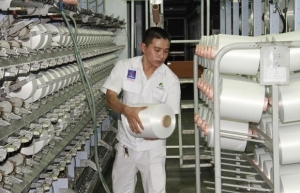 | Poor-performing projects struggle with restructure Seven out of 12 slow-moving and inefficient projects under the Ministry of Industry and Trade's supervision are still waiting in line for their fates to be processed. |
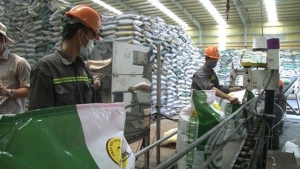 | Agro-product providers and exporters defy impact of sharp increase in fertiliser prices Long-term contracts underway mean that many agro-product providers and exporters are withstanding the impact of a sharp increase in fertiliser prices. |
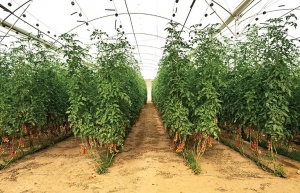 | Organic fertiliser becoming answer for agri-businesses Agricultural businesses are struggling to find solutions to replace fertiliser, with prices continuing to rise. |
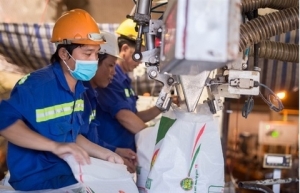 | Tougher measures needed on fake fertilisers: insiders The disruption of fertiliser supply caused by the COVID-19 pandemic has led to mounting counterfeit fertilisers in the past two years, exposing the need to tighten up the market. |
What the stars mean:
★ Poor ★ ★ Promising ★★★ Good ★★★★ Very good ★★★★★ Exceptional
Related Contents
Latest News
More News
- VinaCapital launches Vietnam's first two strategic-beta ETFs (February 26, 2026 | 09:00)
- PM sets five key tasks to accelerate sci-tech development (February 26, 2026 | 08:00)
- PM outlines new tasks for healthcare sector (February 25, 2026 | 16:00)
- Citi report finds global trade transformed by tariffs and AI (February 25, 2026 | 10:49)
- Vietnam sets ambitious dairy growth targets (February 24, 2026 | 18:00)
- Vietnam, New Zealand seek level-up in ties (February 19, 2026 | 18:06)
- Untapped potential in relations with Indonesia (February 19, 2026 | 17:56)
- German strengths match Vietnamese aspirations (February 19, 2026 | 17:40)
- Vietnam’s pivotal year for advancing sustainability (February 19, 2026 | 08:44)
- Strengthening the core role of industry and trade (February 19, 2026 | 08:35)

 Tag:
Tag:


















 Mobile Version
Mobile Version